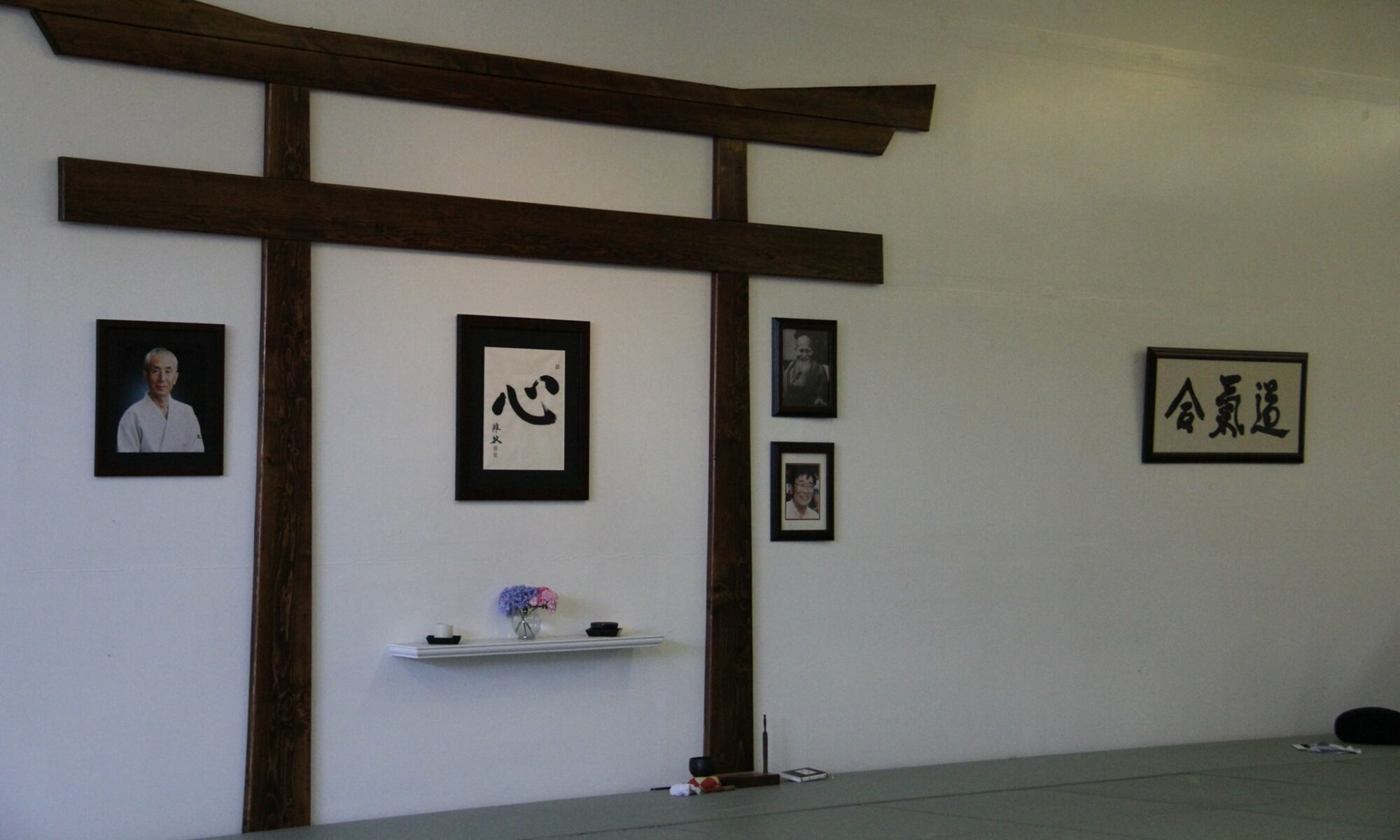We come to our dojo to train so that we’re better able to apply the principles of aikido in our daily lives.
The first beginner class of each month Aikido Olympia instructors begin with some talking about what Aikido is and typically take a moment to describe the kanji of Ai, Ki, and Do as a way of living in harmony with the energy of the universe. These classes are fascinating in that you can attend them almost every month for years and learn something new each time.
When we talk about energy in a physical sense, we are also talking about its relationship with both power and work. Reviewing high school physics class, the basic idea is that energy is contained in all sorts of things (even the atoms of nitrogen in the air surrounding us) and when that energy is applied to making something happen, it can be considered power.
In our training we discuss energy as the material we use to do our arts, the same way a painter might use paint or a potter might use clay. And we typically use the energy with our partners to make something happen like a kokynage or ikkyo (to do work). So, from a certain perspective, Aikido practice has a focus on recognizing and working with power.
Power is a such an interesting topic- especially when we think about it from an interpersonal perspective. Many of us often look at power as though it has some moral value. In many cases we view it as a negative thing, something that others use to force us to do things. In many cases, we look at power as something that certain people have and that those people use to achieve their goal. However, if we consider that our practice is to help us live in harmony with the energy of the universe, that energy is contained in everything, and that the application of that energy is referred to as power, than living an Aikido lifestyle requires us to accept that everyone (everything) has power and to respect everyone’s application of their power. Once we can truly embrace power (whether it’s physical power, the charismatic power of a certain person, the reward power of an employer, perhaps the coercive power of yonkyo, or the expert power of an instructor) then we can constructively work with it and apply our practice to all of the relationships in our lives.
Aikidoka should consider the relationship between energy and power when we think about the nature of our practice and when we consider how Aikido can be applied to our daily lives.
By Nate Weed

